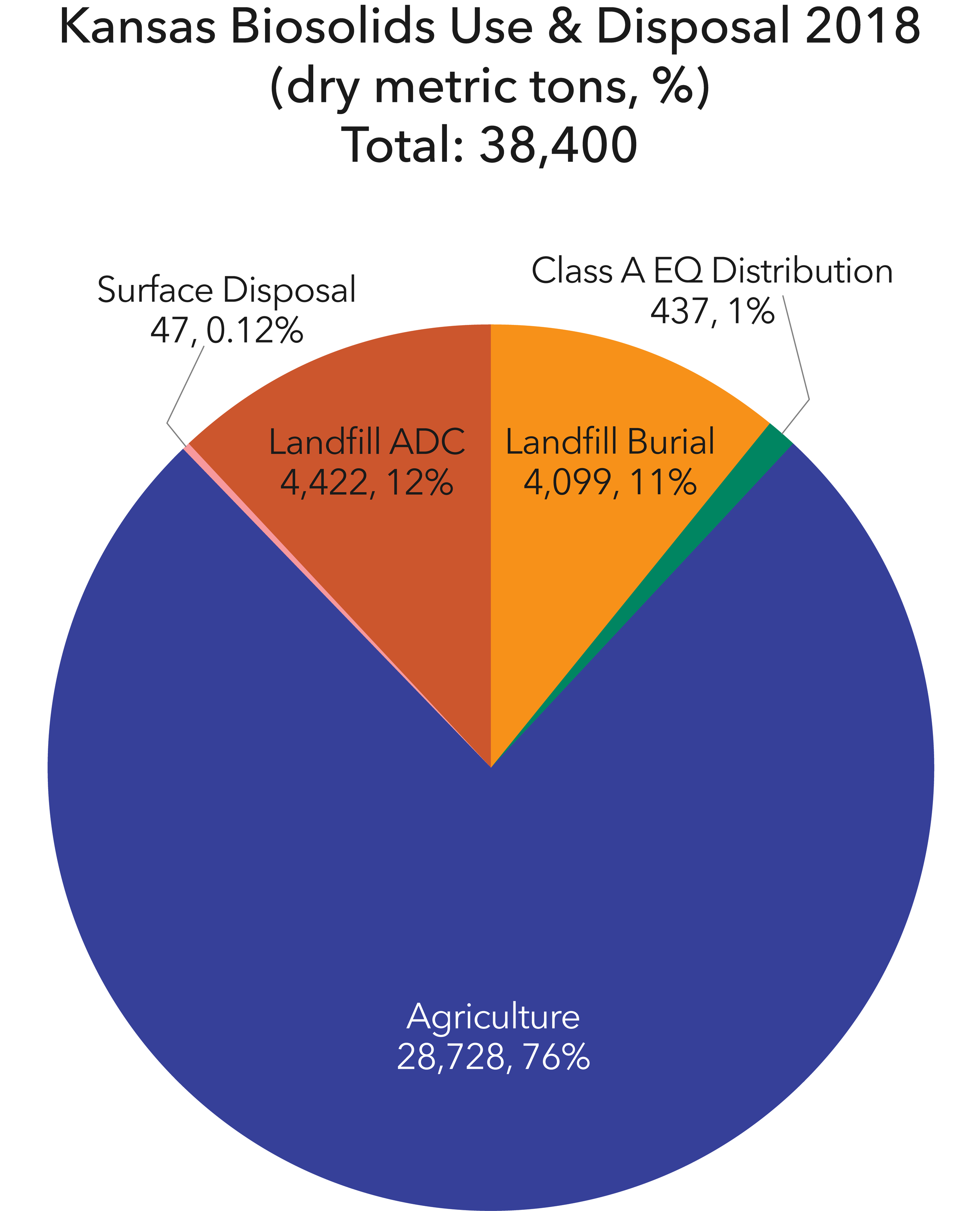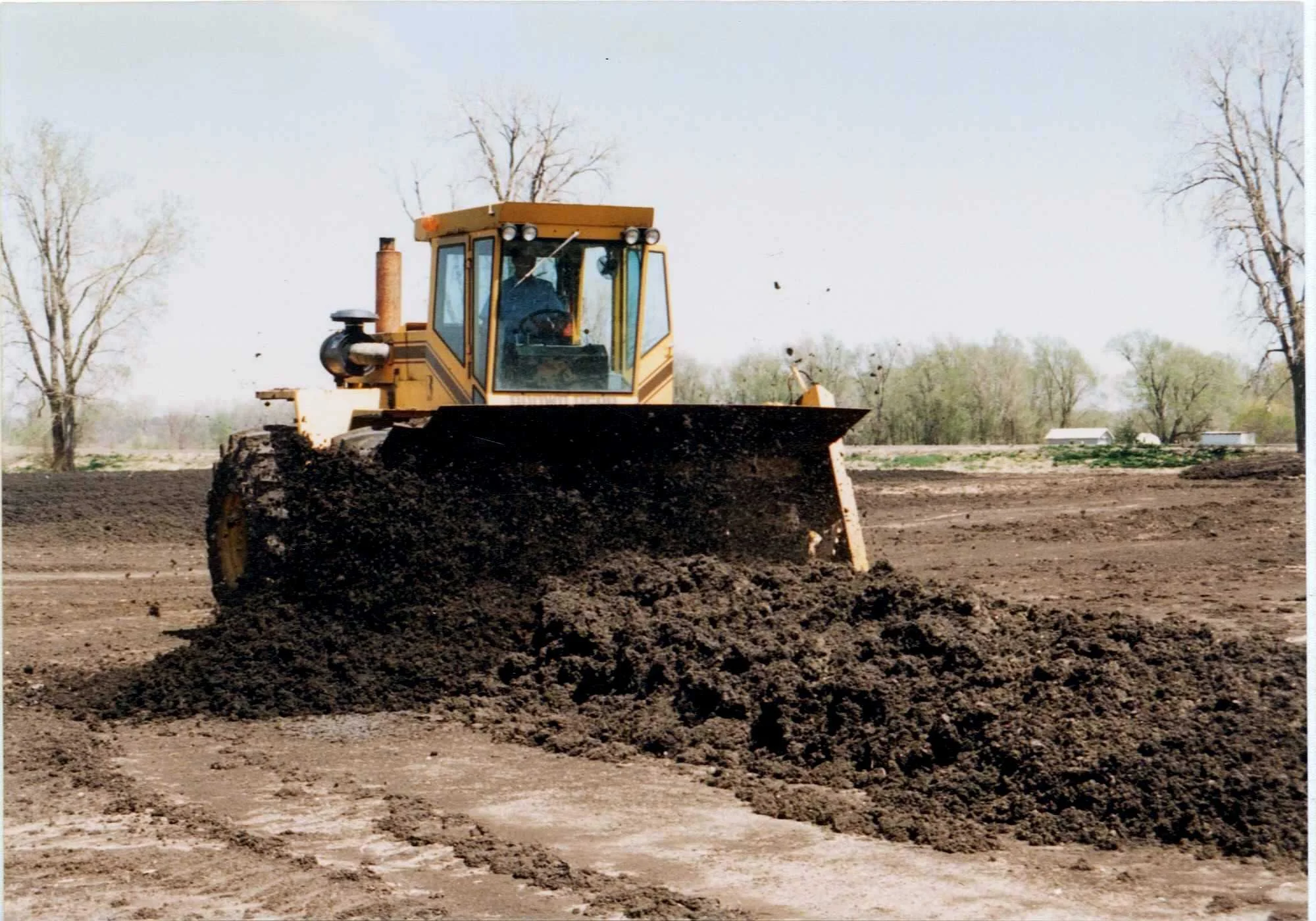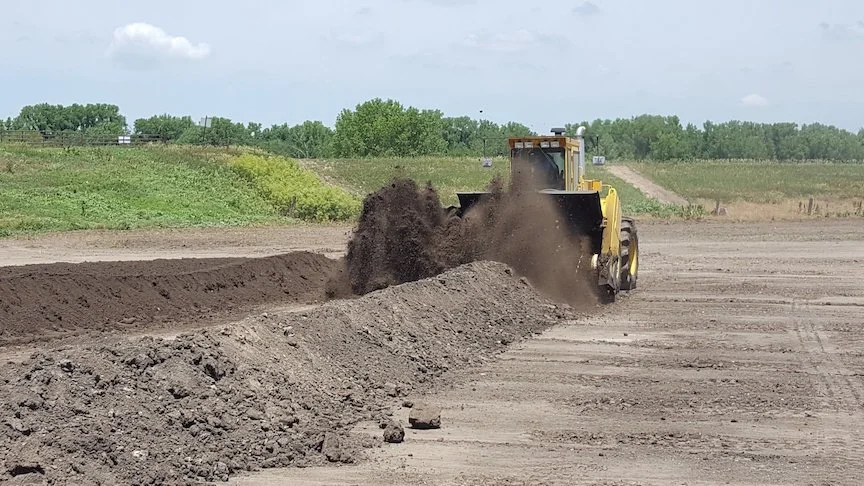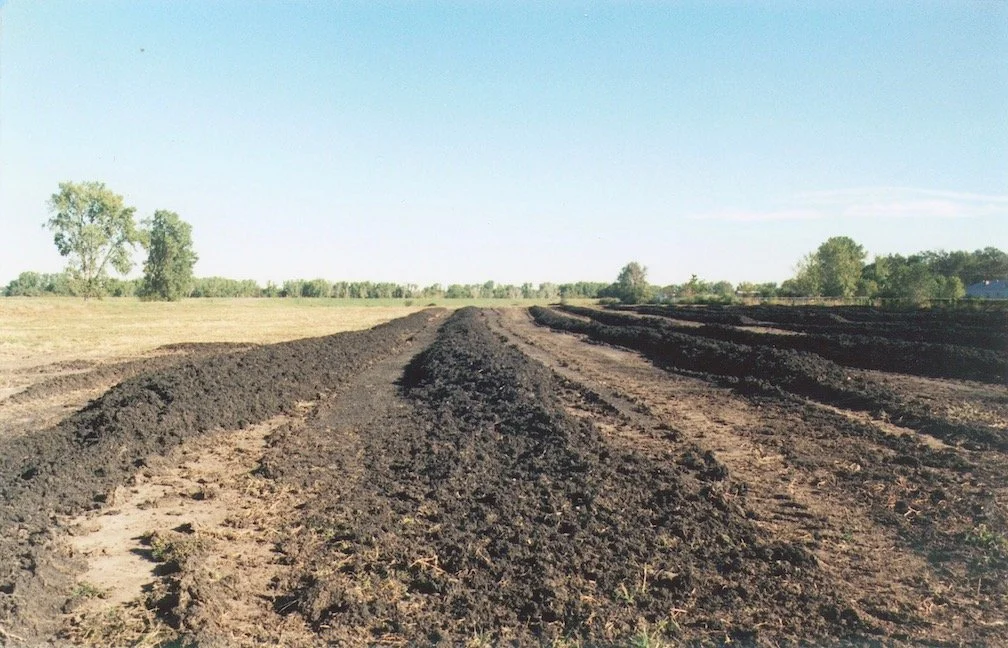State Data
Confidence in data for this state:
MODERATE
2018 data unless noted.
Definitions
Terms used on this website and in data sets are defined & discussed here.
Composting biosolids in Topeka. Photo courtesy of Sylvan Coles, City of Topeka.
Composting biosolids in Topeka. Photo courtesy of Sylvan Coles, City of Topeka.
Biosolids compost windrows in Topeka. Photo courtesy of Sylvan Coles, City of Topeka.
State Statistics Dashboard
State Summary
● In Kansas, land application is the most common biosolids management practice. The state has ample farmland and no state-level or site-specific regulations for land application. Farmers are enthusiastic about using biosolids as soil amendments, and there’s no shortage of application sites. The biggest challenge for land application of biosolids is urban sprawl - development pushing agricultural land farther from the urban and suburban areas where the most biosolids are generated.
● Johnson County Wastewater (JoCo) is the largest operator in the state, with 6 water resource recovery facilities (WRRFs) serving the metropolitan area west of Kansas City, MO, and managing biosolids through a combination of land application and landfill alternative daily cover (ADC). Of these 6 plants, one (Tomahawk) underwent significant upgrades that came online in 2021, with new anaerobic digesters and a shift to land application; another (Nelson Complex) is in the design phase of major upgrades, projected to be completed in 2027. JoCo’s Blue River and New Century Airport plants both truck solids to Nelson for dewatering, thickening, and landfill disposal. After Nelson’s upgrades, all of the biosolids in JoCo’s system will be beneficially recycled as soil amendment.
● Kansas’ other large WRRFs – including Wichita, Topeka, Lawrence, and Kansas City, KS – also land apply their biosolids, most of which are treated to Class B standards, although Topeka and KCK also send some solids to landfill.
● The Kansas Department of Health and Environment (KDHE) administered the federal biosolids rule, 40 CFR Part 503, starting in the 1990’s. On July 1, 2012, KDHE returned management of Part 503 for mechanical plants to the U.S. EPA.
● NBDP estimates that 50% of septage in Kansas is stabilized to meet Part 503 requirements and directly land applied; the other 50% is hauled to WRRFs. (2018 estimation based on estimation for 2004.)




